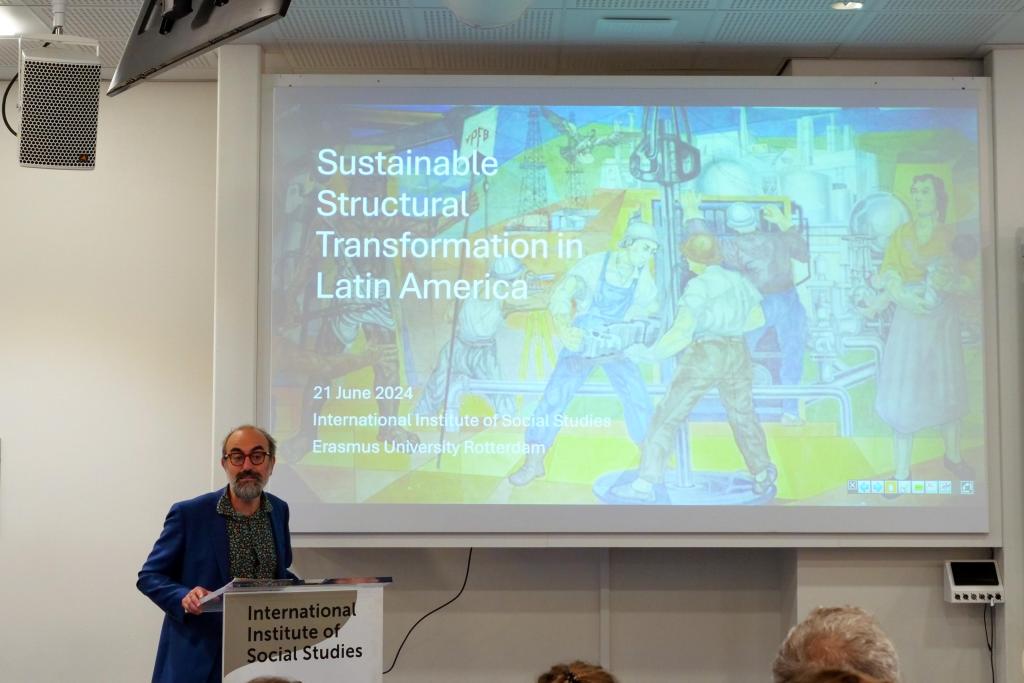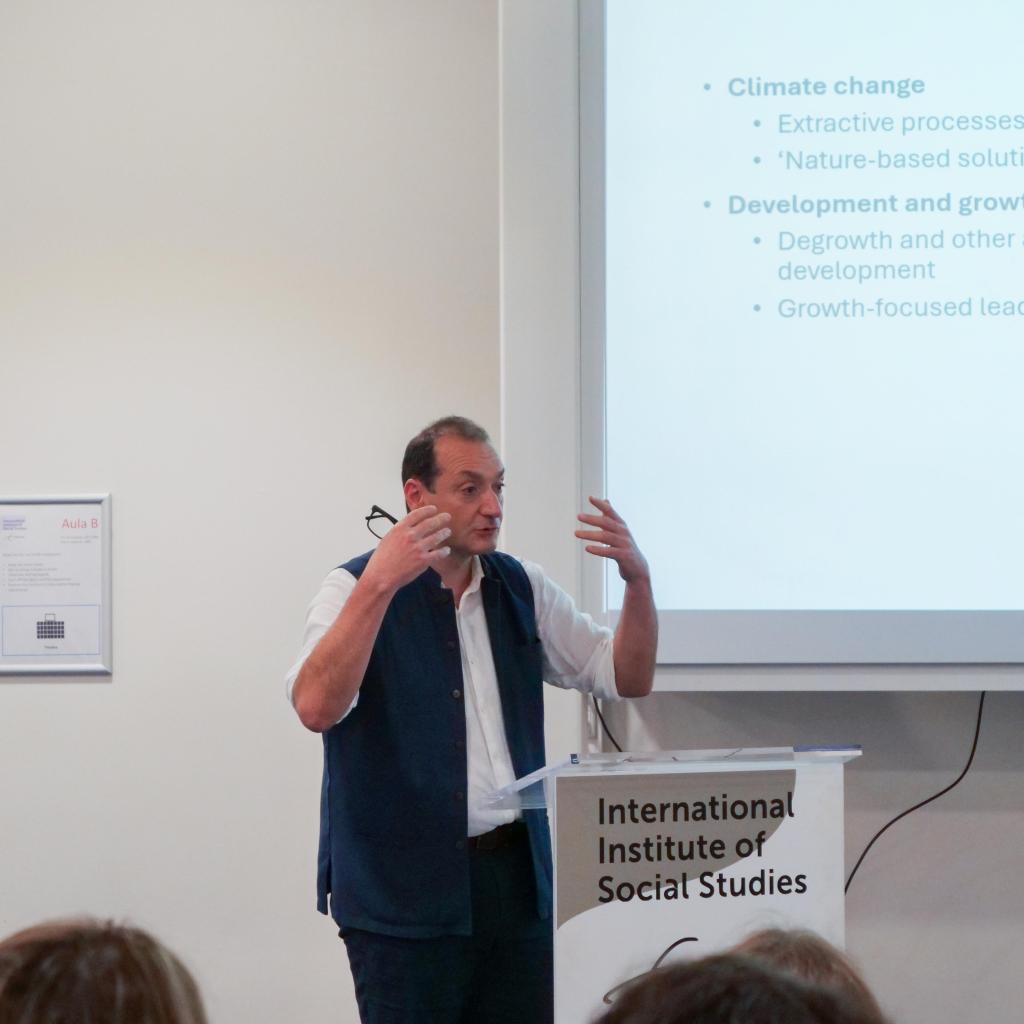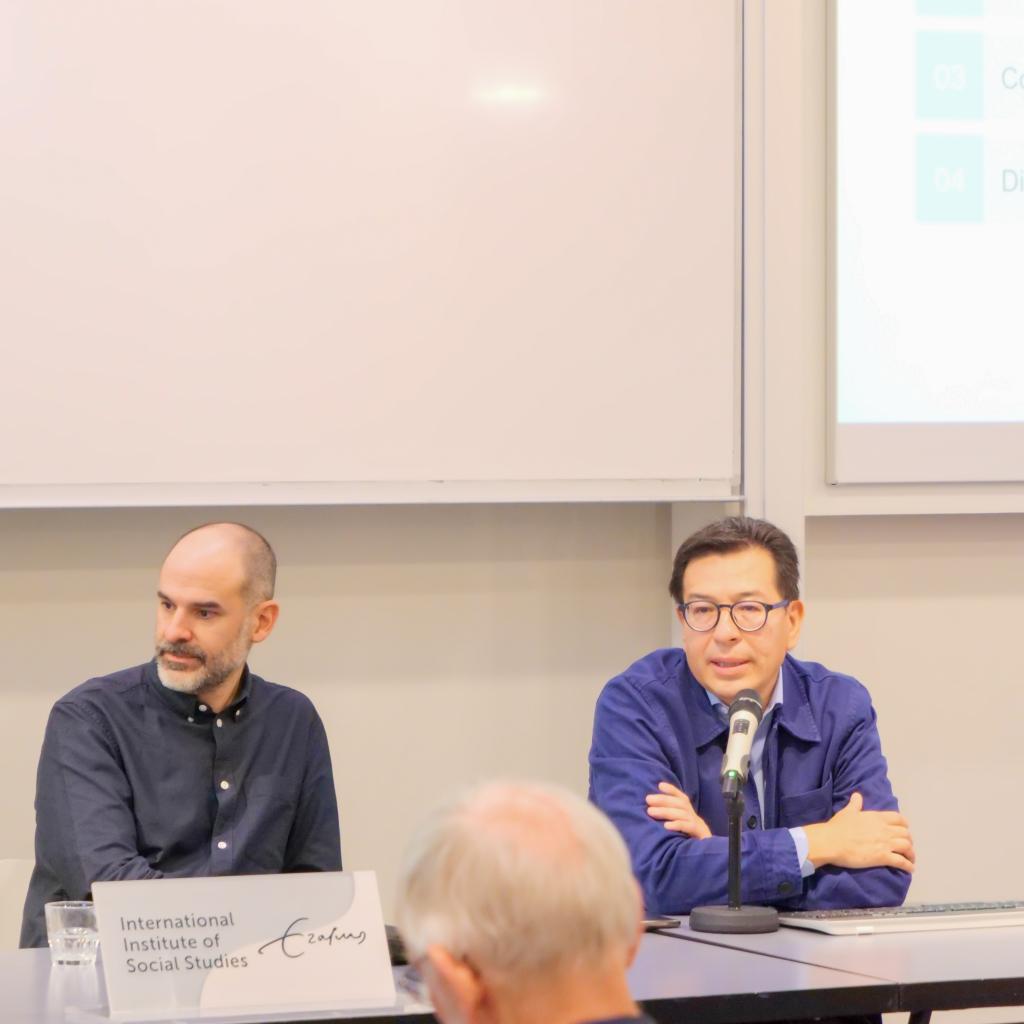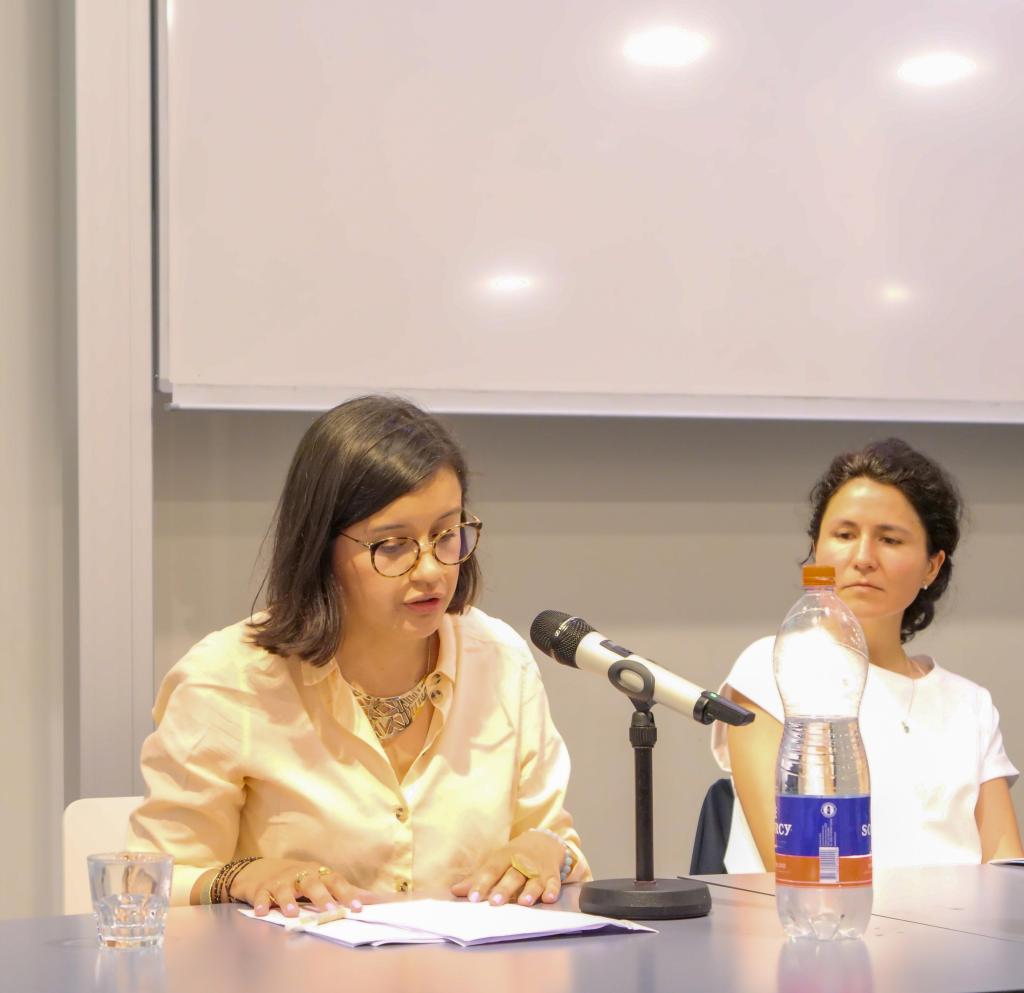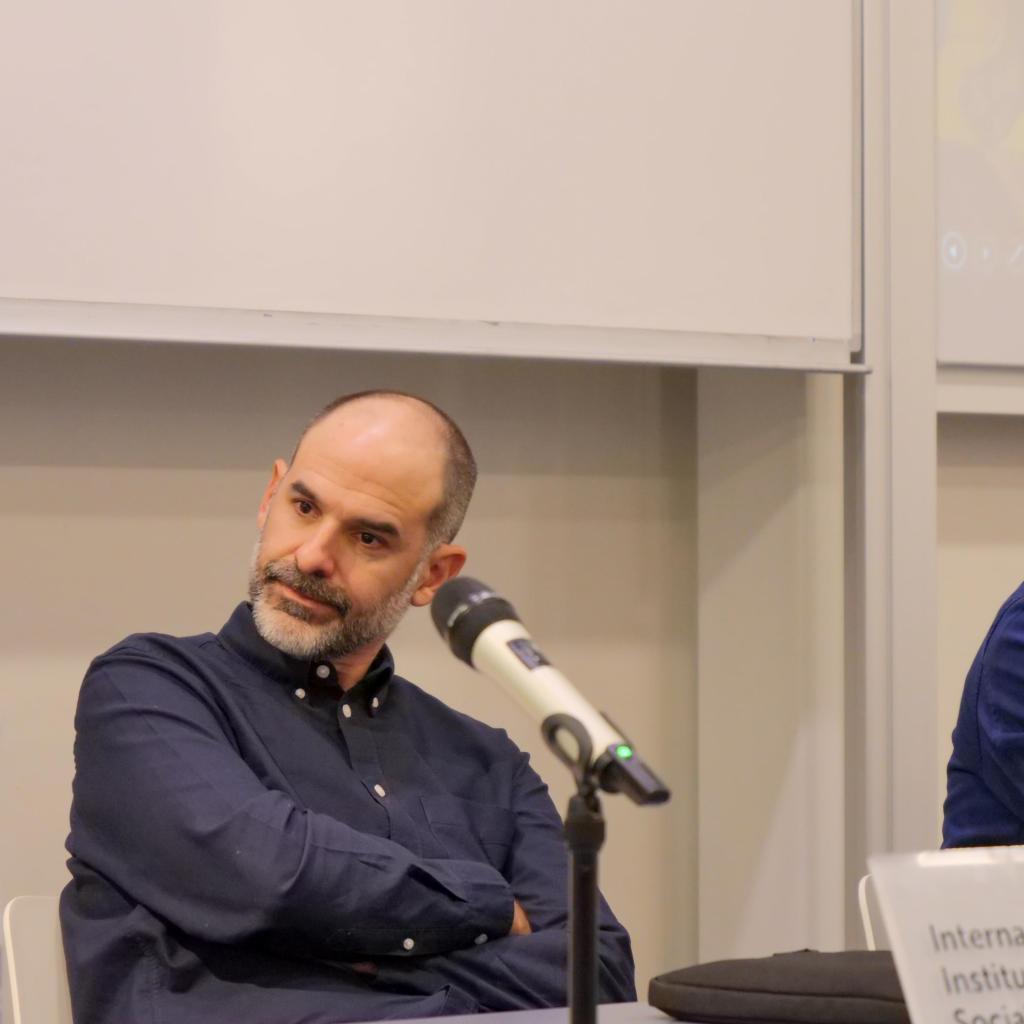International collaboration and knowledge exchange are crucial amidst today’s global challenges. The recent panel on Sustainable Structural Transformation in Latin America highlighted this by fostering dialogue and innovation across borders. Workshops, symposiums, and webinars drive the exchange of ideas and solutions, addressing societal issues and promoting sustainability. These activities shape a more collaborative and informed future. Join us in recapping this impactful event and exploring key insights from our ongoing knowledge-sharing journey.
Research Insight: Recap of the Panel Discussion on Sustainable Structural Transformation in Latin America
On Friday, June 21, Leiden-Delft-Erasmus (LDE) Global organized an engaging panel discussion on sustainable structural transformation in Latin America. Hosted by the International Institute of Social Studies (ISS), the panel featured insights from Professor Fander Falconi, Dr. Soledad Valdivia River, Dr. Fatima Delgado Medina, and Dr. Sebastian Ureta on transitioning the region away from its reliance on primary commodity extraction.
The session, co-chaired by ISS professors Murat Arsel and Lorenzo Pellegrini, addressed the polycrisis facing Latin America, focusing on climate change, development and growth, and democracy and accountability. They highlighted the region's environmental challenges and innovative efforts to redefine the link between economic growth and socio-economic development. Sustainable transformation requires a just transition away from primary commodity exports.
Latin America's Political Evolution and Sustainable Development: Insights from Professor Fander Falconi
Professor Falconi discussed the region's shift towards left-wing politics and progressive policies in the early 2000s, and the subsequent regression post-2015 due to COVID-19. He emphasized the need for sustainable practices, recognizing cultural diversity, promoting inclusive institutions, and ensuring active democratic participation. Falconi also called for wealthy nations to reduce fossil fuel demand and adopt policies promoting dematerialization.
Exploring Sustainable Transformation: Challenges and Solutions from Diverse Perspectives
The other speakers provided diverse perspectives on achieving sustainable transformation. Dr. Soledad Valdivia River highlighted the dangers faced by environmental defenders and the political-economic shifts in Bolivia, focusing on indigenous communities' complex relationship with extractivism. Dr. Fatima Delgado Medina advocated for redefining sustainability by acknowledging the historical impacts of colonization. Dr. Sebastian Ureta emphasized the potential of Chile's burgeoning seaweed industry to drive sustainable economic opportunities while respecting nonhuman entities.
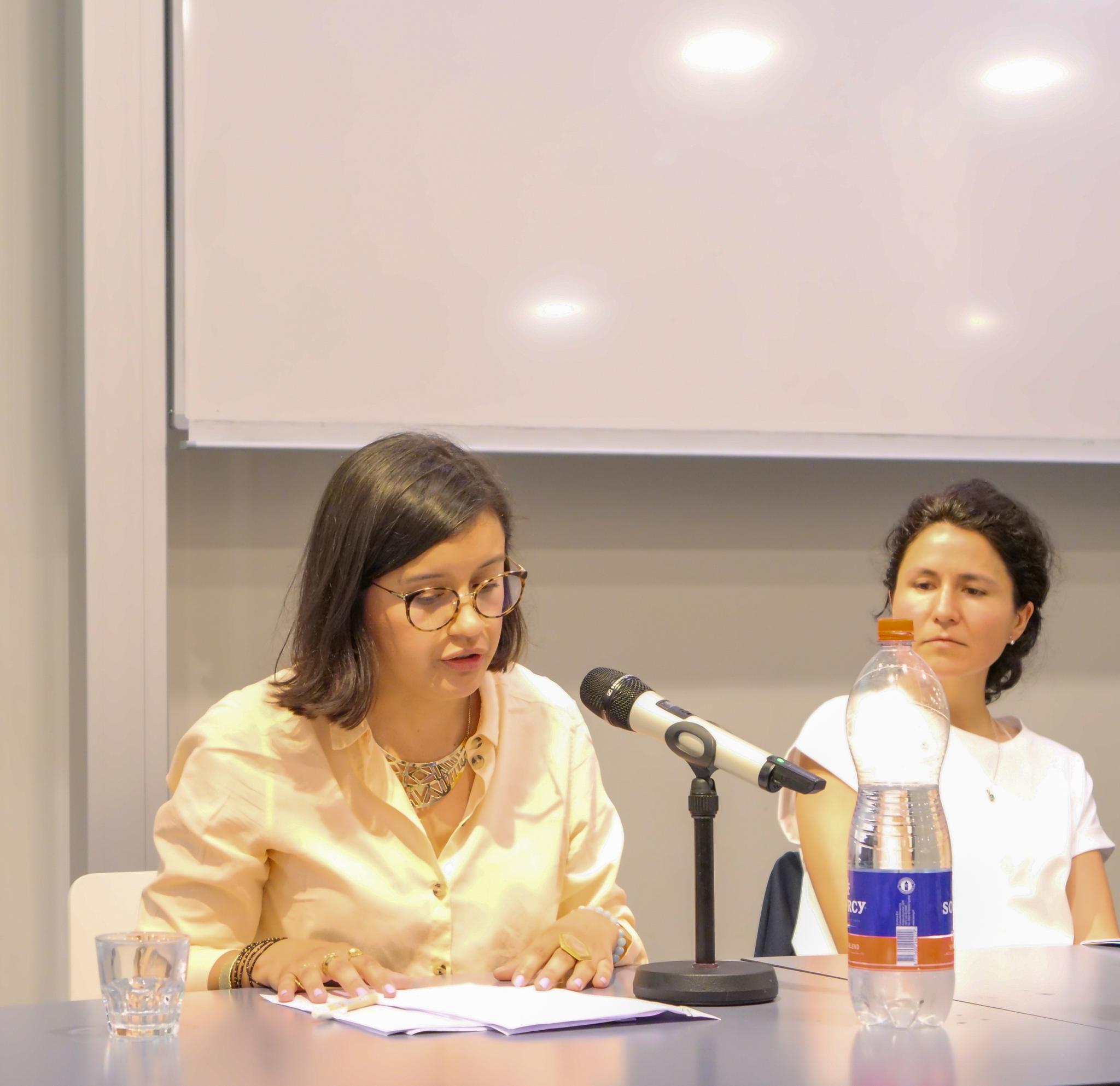
The Path Forward: Integrating Socio-Economic Development with Environmental Justice
The panel underscored the importance of understanding Latin American dynamics within a global and historical context of persistent inequality and injustice. Balancing socio-economic development with environmental sustainability requires rethinking and reordering global power dynamics. Environmental justice and decolonialization are key, though much work remains to conceptualize them effectively.
Stay tuned for more research insights from our LDE Global Network
